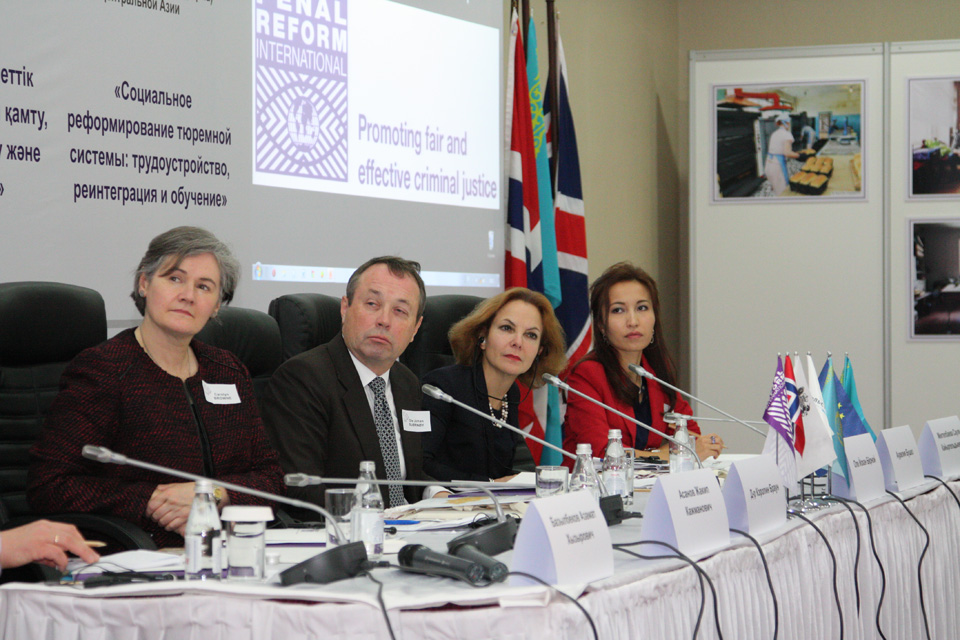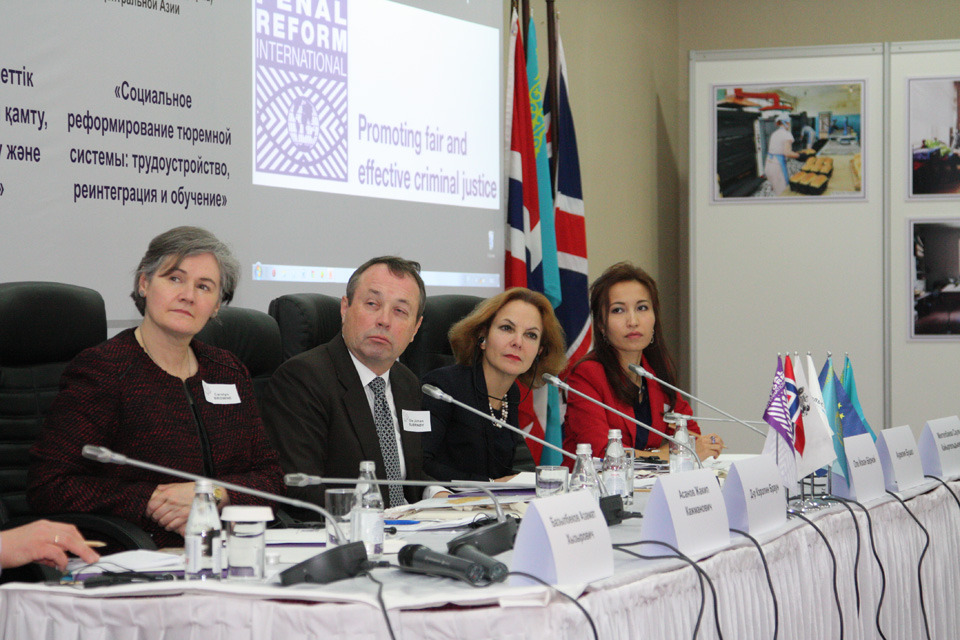Social Reform of Prison System
Speech given by British Ambassador on October 17. This is an English transcript of the speech, partly it was delivered in Kazakh.

I am delighted to be here today to speak about an important issue of prison reform. Many thanks to all those involved in making today possible – and in particular to Saule Mektepbayeva and her team in Penal Reform International, Ambassador Bjørnøy Ole Johan, and Deputy Prosecutor General Bazylbekov. I would like to thank everyone present here today.
The British Government is delighted to continue our cooperation with the Kazakh government and with civil society in order to improve criminal legislation and practices. This project’s aim is to study the different ways to carry out penal reform. We hope that the results will be used in the new criminal codes and thereby facilitate positive changes. Rehabilitating ex-prisoners is officially recognised to be a significant problem in the local prison system. Unemployment, both while prisoners are serving their sentences, and after release from prison, is a key challenge. The current situation leads to the release of people back into society without savings they might have made during their sentences, with a lack of social and affordable accommodation, and without the skills necessary to compete in the local job markets. That’s why building an effective national system of rehabilitation and re-socialisation of ex-prisoners is so important – both for the individuals, for the prison service administration and for society as a whole.
Ideally, helping former prisoners to re-integrate into society is a process which should start from the very beginning of imprisonment, not toward the end of it or after a prisoner is released. In the UK prisons system we have various programs of employment and training available to prisoners while they are serving their sentences. This helps contribute to the aim of rehabilitating prisoners and thus reducing the risks of reoffending. It requires a holistic approach to achieve – bringing together a wide range of practioners and stakeholders, from those in Government ministries and penal administration, to social support mechanisms, local businesses and indeed local communities themselves. Community involvement and business participation are absolutely crucial in achieving success. I’m delighted that we have here today Alison Hannah, Executive Director of Penal Reform International, to speak about practices in the United Kingdom.
The UK continues to see human rights as a key international issue and is glad to offer continued British Embassy support to human rights initiatives in Kazakhstan. We are glad to have provided funding for this conference. We hope that it will serve as a solid platform for a discussion of the problems and challenges, but most importantly for seeking effective solutions. I wish you all fruitful discussions.

Social Reform of Prison System
Updates to this page
-
Added Russian translation
-
correct the spelling
-
add a link with photos
-
First published.